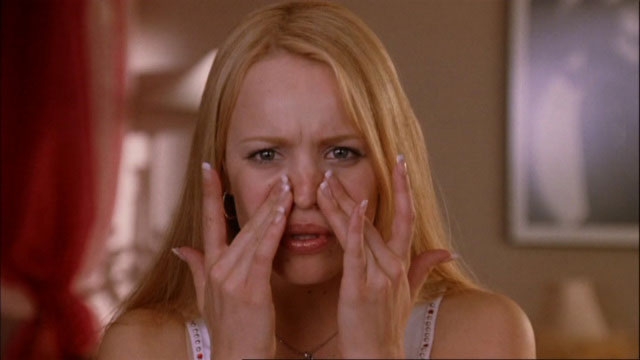
After months of iso, I know my skincare routine is absolute yearning for a bit of a zhuzh-up.
It’s fair to say that since March, we’ve probably inundated our faces with more blue light and less Vitamin D than ever before – I don’t know about you, but habits like these aren’t exactly reaping the most glowing results right now.
Knowing where to start when it comes to protecting ya skin best can be a little intimidating – understanding the function of serums and how to properly pick a sheet mask that’ll ~actually~ work can be a challenge that’ll leave the best of us flailing cluelessly through the aisles of Priceline.
So, to take some of the guesswork out for you, we hit up dermatologist Dr. Cara McDonald to get the 411 on the non-negotiable, absolutely essential skincare rules to follow.
From sun protection to fighting off the signs of ageing, here’s what she has to say.
PEDESTRIAN.TV: What is the most important step of every skincare routine?
Cara McDonald: It’s almost impossible for me to name only one important skincare step because most people need at least a couple but if I have to, it’s always sun protection.
People still underestimate the effect of the sun on their skin and ageing process. We only need to look at the skin on areas of the body that have rarely seen the sun, to understand the damaging impact of UV rays.

PTV: What’s the best way to know a product is compatible with our skin type?
CM: My advice is to establish a basic routine suitable for all skin types including daily sun protection, a soap-free gentle cleanser and a quality, minimalist moisturiser to protect the skin barrier.
After this we can start adding in active ingredients which are suitable for each individual, one at a time to ensure that they are well tolerated and suitable for the individual.
PTV: How do we pick a moisturiser that’s actually going to work?
CM: Choice of moisturiser is highly dependent on skin type. All skin types however will benefit from moisturiser to improve the barrier protection, reduce inflammation and improve tolerance to other skincare products. Many people assume if they have oily or congested skin they do not need a moisturiser but in fact they will actually produce more oil if they fail to moisturise the skin.
I would always recommend a fragrance-free, high-quality, minimalist moisturiser designed to improve skin hydration and reduce water loss whilst avoiding ingredients that may cause allergy or irritation in some individuals.

PTV: How can we change our skincare routines to protect our faces against the winter ~chill~?
CM: Many people suffer from dry skin during the Winter months. This is due to lower humidity in the atmosphere and increased use of heating which is quite drying on the skin. If you do suffer from dry skin, you should pre-empt this by ensuring that your skin barrier is in excellent condition year-round.
Avoid soaps and harsh skin care, opting for a gentle derm-approved cream cleanser and use regular high-quality emollients, especially in the lead up to winter.
You should try to avoid overheating and drying environments where possible and consider in clinic treatments such as anti-inflammatory LED light to calm down the skin inflammation.
PTV: What ingredients are going to help us fight off wrinkles and lines?
CM: There are many ingredients used in anti-ageing skincare but the strongest evidence exists for just a handful of proven ingredients. The first and foremost ingredient in any anti-ageing regime should be sun protection. Sun exposure is the greatest cause of premature ageing.
Many people only use full sun protection when they expect to be outdoors all day but we should be applying SPF every day if we are invested in anti-ageing. Otherwise the most effective ingredient to reverse the signs of ageing is topical Vitamin A, also known as retinol.
This ingredient will stimulate epidermal cell turnover and increase collagen production as well as reduce pigmentation. Antioxidants are also important in an anti-ageing regime to reduce oxidative stress on the skin. This will help skin repair and reduce premature ageing.
Other effective ingredients include alpha hydroxy acids (AHAs) which stimulate hyaluronic acid to improve skin hydration, and Vitamin B3, known as niacinamide, which has numerous benefits in the skin including anti-inflammatory effects, improved skin barrier and photo-protection.
PTV: What’s the best way to sooth skin irritated by certain products?
CM: When the skin begins to appear irritated by certain products we need to differentiate whether or not there is an allergic or irritant reaction. If there is a rash or the skin is itchy its best see your doctor to exclude allergy.
However, many active skincare ingredients can cause irritation, especially when trialling a new product. This is an expected side-effect and generally suggests that you have sensitive skin, or that you have been a little bit too enthusiastic with your application quantity or frequency.
In most cases it is best to have a break from active skin care for a couple of days using a gentle, minimalist moisturiser, specifically formulated for sensitive skin, until it settles. You can then restart the product using just small amounts, and I would normally suggest using it every second day for 2-4 weeks before returning to daily application.
If you do have sensitive skin, it is best to choose products without fragrance or other irritants where possible. If in doubt, see a dermatologist or specialist dermal clinician for a full evaluation and advice.

PTV: Why is it so important for us to avoid products that include ‘fragrances’?
CM: Fragrances in skincare products cause problems for many people. Fragrances are one of the most common causes of allergic contact dermatitis which causes a red, bumpy, scaly, itchy rash.
What many people don’t realise is that allergic dermatitis can develop after using a particular skincare product or fragrance for many years. Once allergic however people will continue to have problems with that ingredient indefinitely.
Fragrances can also be quite irritating in those with sensitive skin. If people have ever had problem with skincare, they should look for fragrance-free skincare products at all times.
People should also be aware that perfumes or fragrances in other products such as shampoo, can cause reactions on the face. If struggling with skin reactions, it is best to see a dermatologist for evaluation.
PTV: What’s the deal with exfoliating? How often should we be doing it?
CM: Exfoliation can be done using chemical ingredients such as alpha hydroxy acids, which help shed dead skin cells and improve cellular turnover, or alternatively using physical exfoliation.
Many people actually have problems with physical exfoliation as it tends to cause a reactive protective mechanism in the skin.
This can increase congestion and inflammation, worsening skin problems rather than improving them. I would advise against physical exfoliation for most people and recommend opting for gentler chemical-free products.



